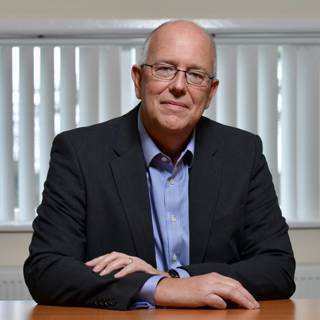Company adds consultancy services to software supply as it continues to tailor fleet management solutions to client needs.
The inability to perform fleet management correctly can have “massive implications” especially for small-to-medium enterprises (SMEs), according to FleetCheck founder Peter Golding.
Having run independent garages for 15 years Golding grew to know the “spanner side of the business” well and during that time he came to realise that many of his clients were unsure of how to run their fleets correctly.
“The fact of it is, if you don’t do fleet management correctly, the implications are massive. The company could go bankrupt and there may even be custodial sentencing,” says Golding.
Further up the scale, major companies convicted of corporate manslaughter could face fines of up to £20 million, alongside sentencing for severe breaches of health and safety, under new guidelines enforced in February 2016.
“I felt we could be doing more to help, and that was when I noticed a gap in the market for SME vehicle management software,” he says.
Golding’s desire to help the inexperienced fleet manager, twinned with his engineering background, led to the creation of simple and easy-to-use software. FleetCheck was launched in 2006.
A dozen years on, the company has launched Policy Manager, a service designed to help fleets remain legally compliant and avoid hefty fines.
“It creates policies for fleets to help them with compliance, but on the back of that we are launching a consultancy service – to help create a more personalised and direct approach,” says Golding.
It was FleetCheck’s dedication to the industry that won over the Fleet News judges alongside its flexibility with product offerings and focus on legal compliance.
Making user-friendly software was key for Golding as he encountered inexperienced fleet managers predominantly using spreadsheets to manage their vehicles.
“Companies were reliant on spreadsheets. The majority were not using a fleet management system but had it all on multiple spreadsheets. While they are essential for financial control, they are not for fleet management,” he says.
FleetCheck’s focus on the industry is unwavering and its innovations will continue to be led by its clients and whatever the industry needs.
As Golding explains: “Currently, 80% of our functionality comes from our users. Our clients have continuously inspired our offerings. We will continue to be inspired by them.”
The service has since expanded to accommodate fleet management of all sizes and not just sub-200, thanks to a partnership with TomTom Telematics that started in 2007.

Fleet News (FN): Is it challenging to transition companies reliant on spreadsheets to a fleet management system?
Peter Golding (PG): What we found is that change is always a problem, especially when companies are reliant on spreadsheets.
The majority of companies we come across are not using a fleet management system, but have it all on multiple spreadsheets.
FleetCheck runs on exception management and will tell the user what needs to be done, rather than what has been done.
Training is all performed online and takes no longer than an hour. We transition a company from spreadsheets onto a database, which is designed as a stepping stone.
After the training, businesses’ fear of change is eliminated as FleetCheck’s traffic light notification system is simple to follow. It was designed specifically to diminish fear.
FN: FleetCheck does not offer on-site training or webinar-based learning, why?
PG: We pride ourselves on our levels of support. To me that is absolutely number one.
We try to make the training as personal as we can, because everyone learns at different levels.
The problem with webinars is that people are only watching and listening – whereas if they call us or do online training, they are learning by doing.
My views are simple: if the only way we can demonstrate the software is via webinar then it is too complex.
If we have to do on-site training, workshops and training sessions then we have lost what we are trying to do, which is to create something people can pick up easily.
We combine that level of learning with support, because if you are dealing with someone whose main responsibility is not fleet management, then they often need guidance.
We spend a lot of time supporting clients through areas where they may need that extra bit of guidance.
FN: Does FleetCheck have the ability to integrate data from other sources?
PG: Thanks to our many telematics partners, FleetCheck can pull all of that data through. Mileage information is particularly powerful to us.
We have also integrated with every fuel card provider in the UK. We combine fuel usage with vehicle mileage, so we can provide meaningful mpg analysis.
We launched a walk-around driver app earlier this year as part of the FleetCheck service, which also integrates the data it collates.
FN: How does the app differ from other free products on the market?
PG: Drivers are able to carry out vehicle inspections, record any defects and instantly notify the software.
If a defect is found, the driver can photograph the damage and that picture will be sent to the fleet manager. From there they can identify if the vehicle needs to be taken off the road or taken for a routine check.
The app relays information back to the office and closes the loop.
Combining a walk-around inspection tool with a fleet management software platform is the single most powerful thing.
Walk-around apps without fleet management software integration are good, but if that data doesn’t get fed into the system then it is simply replacing a piece of paper with an email.
With the ability to integrate data from telematics, fuel and maintenance providers, FleetCheck has now become an all-encompassing solution.
FN: What separates FleetCheck from its competitors?
PG: I never like to talk about my competitors. I prefer people to focus on us and I think in the industry we are in, it is far nicer for us all to get on.
When comparing us to Jaama or Civica, for example, I would say we all do something different.
FleetCheck clearly has a specialism within the SME sector as that is the foundation of the business. As we evolved into larger fleets we provided more bespoke work.
Our USP is the fact the system was designed to be intuitive and an easy transition from spreadsheets, especially with our traffic light notification system.
It is much easier to take something simple to use and make it more complicated, but harder to do the reverse and make something that is complex simple to use.
People choose us because they like us.
FN: Will FleetCheck ever diversify its product offering into other management systems?
PG: We don’t diversify in the fleet market. We have had many opportunities to do this but our focus is to concentrate on the fleet management aspect.
If someone was looking for a back office management system to manage rental vehicles, invoicing or a workshop management system, then, in fairness, we would encourage them to look at the market.
If we started to digress into those areas we would dilute our product offering.
FN: What did winning the award mean to you?
PG: I am really proud of the award. We didn’t expect to win and it came as quite a shock. To get recognition from the industry we serve was important to us.
For me it was the result of 10 years’ hard work, and to win it was very gratifying.
We have so many people that have worked extraordinarily hard.
To go back and present the award to my team and see their joy at being recognised by our peers was brilliant.
FleetCheck is developing its future offerings with a focus on artificial intelligence and managing electric vehicle (EV) data.
“We are looking at how artificial intelligence can benefit the app, for example, developments in number plate recognition, driver ID and policy documentations,” explains Golding.
“We are well aware of industry changes and EVs are a big interest to us.”
It also hopes to innovate support for automated MOT alerts and road tax alerts, alongside a vehicle maintenance scheme with Epyx.
Golding adds: “The scheme is targeted at companies who don’t have vehicles in a maintenance agreement with a lease provider.
"We will be able, through Epyx, to give access to a national network of garages with the best prices possible.
“Ultimately, we will continue to be led by clients and by what the industry points out.”

















Login to comment
Comments
No comments have been made yet.